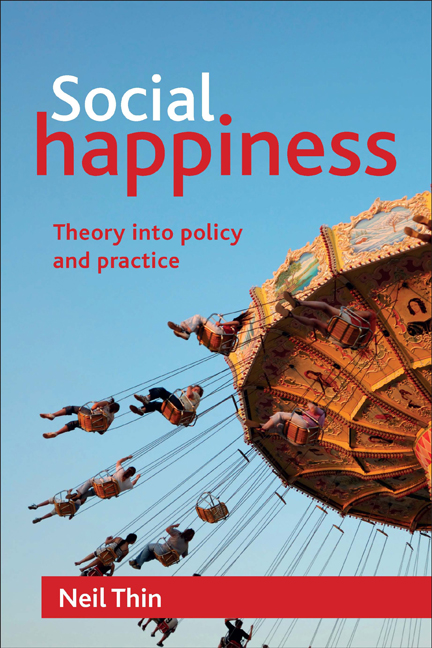three - Effects of happiness (and unhappiness)
Published online by Cambridge University Press: 01 September 2022
Summary
The good life, as I conceive it, is a happy life. I do not mean that if you are good you will be happy; I mean that if you are happy you will be good. (Bertrand Russell)
Success is not the key to happiness. Happiness is the key to success. (Albert Schweitzer)
Happiness … is never a means: on the contrary, it is the only goal which is impossible to instrumentalise. (Bruni, 2006, p 19)
The ‘pursuit of happiness’ implies goal orientation, but is it not rather the ‘happiness of pursuit’ that really matters? A common and wise cliché has it that happiness is the journey, not the destination. This points to the potentially liberating recognition that the good life is there to be enjoyed in the process of living and striving. But by default, our happiness theories tend to be end weighted: we want, strive, achieve, and finally thrive. Understood as a goal, outcome, or reward for effort or achievement, happiness is anticipated as pleasurable pride or sighs of relief and contentment. Although much of the justification for happiness policy is provided on the basis of its status as an ‘ultimate’ value, happiness also matters because it is generative. As a source of inspiration for sustained action, and a disposition to believe in and seek out the good in other people, happiness has key roles to play in social progress. A lot of happiness science has emphasised the outcome version of happiness, but in recent years considerable evidence has been amassed of the instrumental value of happiness as a driver of good actions that not only spread happiness but also enhance other goods such as health, artistic creativity, and social solidarity.
Russell and Schweitzer may have underestimated the role of virtue and success in bringing happiness, but they’re certainly right about the effects of happiness. Bruni is wrong to claim that happiness can't be instrumental as a means to other ends. Like Aristotle, whose beliefs he is approvingly reproducing, Bruni entertains the implausible notion that the intrinsic value of happiness somehow disqualifies it from having instrumental value.
- Type
- Chapter
- Information
- Social HappinessTheory into Policy and Practice, pp. 49 - 58Publisher: Bristol University PressPrint publication year: 2012



